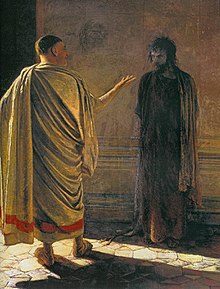We have much to discuss here.
You’ve probably seen the headlines billboarding the rapid decline in ‘those that identify as Christian or with Christian morals. “Christian Cruelty in the face of COVID.” – The Atlantic “Trump has changed Christianity in America.” – The Houston Chronicle.
If you haven’t seen those headlines, you need only attend a weekly service and glance down at the empty pews (pre-covid) to witness the mass exodus of Americans fleeing the arms of atheism, agnosticism, and other non-Christian faith practices. Others are choosing to abandon the church but not God.
“Who cares?” or “Why not just let the ship sink?” some might ask, but that’s why you’re here – there’s a lot to care about (Christian or not), and you’re not willing to let the ship sink. Because of that, your thoughts are needed in this discussion.
- You might be a part of the group of Christians looking for hope, a future, a voice of strength, or something to “save” the church.
- Or you might be a part of a group of “observers” who are on standby, waiting for the Church to “step up,” Although you have not witnessed the power of the Christian church recently, you knew it once and believe it exists.
- Or you might be a part of a group that has disassociated from the church entirely, and you’re interested in this topic because you care about people who are Christians.
The fact is, there is currently power in Christianity. It’s displayed through thousands of streets lined with church buildings, millions of self-proclaimed believers, and billions of dollars to keep things at a steady (and slow) roll. But no matter how you arrived here to read this article, we can all agree that there is much more to Christianity than we see today.
So, what will it take for Christianity to have power in the 21st Century?
- Do you believe Christianity will regain its power through the current political powers that be?
- Do you believe Christianity is “just fine” with the amount of power it has?
- Do you feel confused and dejected in this discussion of power?
A President King
If you’re reading this, you probably desire “good things.” If you’re a Christian, you believe that is achieved through Ekklesia, simplified as “the church as Jesus taught it should be.” A mature Ekklesia (core to Christian belief) is one that repels and defeats significant darkness such as poverty, racism, sex trafficking, drug addiction, mental health issues, and mistreatment of all people who bear the image of God–– period! The list could go on with myriad other issues our societies face. With so much darkness clearly thriving in our world and culture today, a common solution proposed by Christians is to learn from what we know of biblical “Kings” and apply that to our expectations for the American presidency.
It sounds resourceful initially, but it would come at an unbelievable cost. Employing a “President King” would be destructive. It’s like asking the president of a college or university to become the president of a law firm. Their role is to offer excellent leadership and administration, but they have completely different histories and purposes. If this were to happen, many things would fold and crumble.
A “President King” is not the answer to restoring the power of Christianity. Actually, history shows us exactly what that looks like. One example is:

Constantine the Great
During the reign of the Roman Emperor Constantine the Great (AD 306–337), Christianity began to transition to the dominant religion of the Roman Empire. Constantine, although he afforded Christians a great deal of privilege, in the end, historians argue whether the power of the church became a tool to be used by the powerful to fulfill purposes perhaps not so much in line with the mission of God.
Ah! What happened?
- In a time when the influence of Christianity appeared at its greatest, the reality was much different.
- “The cross-centered kingdom became a violent kingdom that embraced the sword. The church had become “the church militant and triumphant,” and the kingdom of God manifested in the crucified Jesus had become the empire of Christendom.” -reknew.org
- “The sacrificial love and humility that characterized Christ and the early church had to be reinterpreted at this time to accommodate the new power that the church leaders believed God had given to the church.” reknew.org
“A President King is not the answer to restoring the power of Christianity. Actually, history shows us exactly what that looks like- abuse of power and the release of the church militant and triumphant’.”
Ashley Edelen
What’s next?
Can we agree by looking at our history that a “President King” will not protect Christianity in its hour of need? What would stop a “President King” from, again, subjugating an unreal amount of power to be used for personal gain or as an instrument to justify deeds? Do we all see that history is a good enough guardrail for us to understand how this would not accomplish the goal of proclaiming Jesus as both Lord and King?
Another scary fact is: there are countless examples of “President Kings” and their effects on the church, i.e., Ekklesia. That means for generations, Christians have allowed this same situation to unfold again and again.
So… How do Christians stand strong against the threat of irrelevance and powerlessness by clinging to the truth of God’s word?
Christianity already has a leader, and he’s not a “President King” He is The King of Kings. There’s a reason why the Gospels rarely mention the powerful emperors of Jesus’ time by name. While he approached the existing political systems with care and wisdom, he rendered those political systems inferior to His Lordship through his teachings and fulfillment of prophecy. He inaugurated and established a Kingdom Governance that held its authority outside of the current political system, which replaces “President King” with the King of Kings: himself. How did he do this?
- Jesus attacked the hypocrisy of the religious elite by denouncing the dangers and inconsistencies of their teaching and confronting the political leaders of his day.
- Jesus created a covenant with his twelve disciples and gifted them with his Kingdom culture to establish a Kingdom Governance movement.
- Jesus leveraged his followers to spark a Kingdom Governance movement that changed the political landscape from that point in history.

The 2020 election
For these reasons, Christians in the 21st Century Church must abandon their devotion to political movements as the power of God to bring about the Kingdom of God and reinstate their place in the Kingdom of God as a vital part of Jesus’ Kingdom Governance movement (Romans 1:16). God will use men and women to accomplish His will; however, it’s ultra hazardous for Christians to anoint any person as Gods’ chosen vessel.
This means:
- It’s ultra hazardous when Christians assert President Donald Trump as God’s instrument of choice for this hour and season.
- It’s ultra hazardous when Christians assert that President-Elect Joe Biden is God’s instrument to usher in total freedom and righteousness in this country.
- The witness of Christians to the world can seem contradictory as Christians proclaim two different leaders as God’s chosen man. The dilemmas are endless.
Though many questions still remain, your thoughts are needed on this. Leave a comment below.
- Christianity will have power because the Kingdom of God that Jesus taught cannot be stopped. However, the question still stands: Will the power of Christianity, based on the ideals of Jesus’ Ekklesia, be restored in the 21st Century?
- Will it operate through the transformation of the heart, not oppression, while denouncing false leadership and teaching?
- Will it cease to be weaponized or infiltrated by political movements, such as the democratic, republican, parliament, or world governing bodies, and instead build out kingdom governance?
- Will Christianity resemble the founder’s intent for the church to be a true societal movement in communities- a people that does not stand by but will only accept Ekklesia?
Will Christians choose in every moment to position Jesus as both Lord and King?
Asheley Edelen

Pontius Pilate
So Pilate said to Him, “Do You refuse to speak to me? Do You not know that I have the authority to release You and the authority to crucify You?” Jesus answered, “ you would have no authority over me if it were not given to you from above. Therefore, the one who handed me over to you is guilty of a greater sin. From then on, Pilate tried to release Him, but the Jews kept shouting, “If you release this man, you are no friend of Caesar. Anyone who declares himself a king is defying Caesar.”… John 19:10-11








